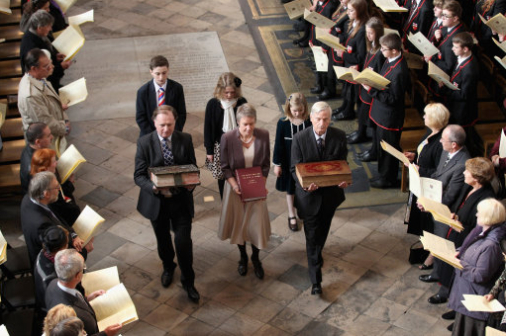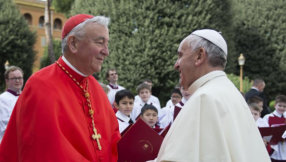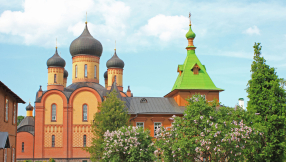
Is David Cameron's vision of Britain as a "Christian country" one that those of other faiths share?
This week a group of more than 50 prominent secularists suggested in The Telegraph that the Prime Minister's comments were fostering "sectarian" divisions in society.
The Chief Executive of the British Humanist Association, Andrew Copson said in The Telegraph: "In a very diverse society like today's we need to build an inclusive national identity not a narrow one."
But for the Muslim Council of Britain, it is a simple fact that Britain is a "Christian country".
"No one can deny that Britain remains largely a Christian country with deep historical and structural links with the established Church," it said in response to the comments.
Rather than criticising the characterisation, the MCB welcomes it, believing that "a sense of the sacred is to be cherished".
The Board of Deputies of British Jews is equally unconcerned about whether Britain's identity is firmly Christian. Their bigger concern is that however national identity is aligned, tolerance must remain steadfast.
Vivian Wineman, President of the Board of Deputies of British Jews, said to Christian Today: "It is neither controversial nor problematic to speak about the benefits of the UK being a Christian country whilst acknowledging its multi-faith aspect. Our main benchmark for success is that society remains open, inclusive and respectful of difference.
"The Church of England, as the established Church, has been a champion of good interfaith relations, better understanding of different religions and understanding of faith in general."
In terms of those who threaten to narrow British identity, the bigger source of worry in Mr Wineman's view is the UK's secularist lobby.
"Those who want to make the UK a 'cold house' to faith, to ban religious practices and even to shut religious voices out of the public debate, demonstrate a dogmatic intolerance that is deeply concerning," he said.
Lord Indarjit Singh, of the Network of Sikh Organisations, has a similar perspective.
Speaking in the Daily Mail, Lord Singh said: "Christianity is the religion of the majority. It is not the greatest sin to say this. What is of greater concern is the letter in response, which says we are not a religious country."
The Hindu community also has positive things to say about the place of Christianity in British cultural and political life.
Anil Bhanot, of the Hindu Council UK, said he was "comfortable" with Britain being described as a Christian nation.
While Deputy Prime Minister Nick Clegg has said Church and State should be separated in Britain, Mr Bhanot believes such a move would be a loss for other faiths.
"From our Hindu minority point of view we would feel left stranded alone since the Church by reason of its disestablishment would have no obligation to look after us for our engagement in the political process," he said.
Mr Bhanot spoke earlier in the Daily Mail about how he and his family happily engage in British Christian cultural traditions without sharing the Christian faith.
"I attend the Commonwealth service at Westminster Abbey each year. I gave my nieces and family Easter eggs on Saturday," he said.
"Many Hindus celebrate Christmas, although they do not go to church, because they are living in Britain. As long as religion is not imposed there is no problem."













